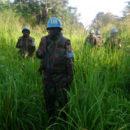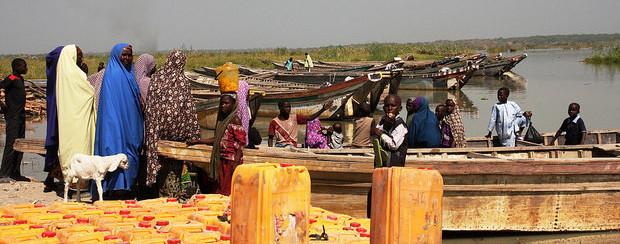Africa’s ‘Rise’ precarious whilst investors still consider safer destinations – By Hannah Waddilove

 The G8 ended their two-day meet this week with a set of fairly flimsy bullet points on the issue of corporate taxation, at least as concerns the reported mass outflows lost by sub-Saharan Africa each year.
The G8 ended their two-day meet this week with a set of fairly flimsy bullet points on the issue of corporate taxation, at least as concerns the reported mass outflows lost by sub-Saharan Africa each year.
That multinationals should “report to tax authorities what tax they pay where”, and that Western governments have “a duty to help” developing countries collect tax owed to them, will be of little reassurance to African leaders who capitalised on the pre-G8 fanfare.
The issue throws up a whole set of questions on African governments’ capacity not only to accurately assess and collect taxes owed to them, but also to attract foreign investment in the first place to relatively high-risk, high-cost environments without incentives.
Moreover, while African leaders’ joined what for a moment looked like a “˜collective voice’ on corporate taxation in the lead-up to the G8, these countries also compete with their neighbours for foreign investment. In keeping with the rest of the world, such competition may limit harmonisation incentives.
African governments will need to look for revenues elsewhere. This was particularly apparent last week when four out of the five East African Community countries released their annual budgets. Large budget shortfalls over-shadowed big, bold infrastructure plans. Uganda’s plans to tax for the first time mobile money transfers (largely the domain of low-end users), or Kenya’s capital gains tax on real estate will do little to plug these holes.
Nevertheless, the collective chorus from East African governments on reducing their dependence on traditional foreign aid sources both chimes with cash-strapped Western budgets and aligns with the spending priorities of the continent’s “˜new’ partners.
Japan’s fifth Africa summit “˜TICAD’ in early June was a sure sign that it intends to deepen its Africa footprint. While China has generally been better at harmonising its investment agenda and African government needs, by prioritising a $32 billion dollar infrastructure package, Japan seeks to offer its comparative advantage on issues of quality and long-term maintenance. The sub-text of TICAD’s summit declaration — a $32 billion dollar assistance package emphasising “˜public-private partnerships’ — is (like China) expanding opportunities for Japanese private companies.
Infrastructure is needed to make East Africa’s energy sectors viable, but the huge capital outlays required for this must make commercial sense. Being on the precipice of a hydrocarbons boom is looking increasingly precarious in today’s fast-moving global energy markets. Often neglected are the bigger, global questions on whether East Africa’s resources alone and even the ancillary infrastructure will be enough. As the US embarks on exploiting its enormous gas reserves, the far higher-risk locations of aspirant gas producers on the East African seaboard may suddenly look far less attractive.
The timing of this may be crucial: as extractives interested in East Africa look set to make their final investment decisions over the next 1-3 years, so might US gas begin to look even more like a bonanza. While the oil market is less saturated, the investment required for exploitation in Kenya and Uganda is still significant.
That the attractiveness of African markets depend partly on the existence of opportunities in safer investment destinations looks set to be Chapter II of the “˜Africa rising’ story. One only need look at how the Kenyan and Nigerian stock markets are sliding at the moment amid investor jitters on US plans to gradually turn off the taps on cheap money.
The problem of “˜African outflows’ is thus intrinsic to the inherent fragility and partial reversibility of Africa’s “˜rise’. With licit and illicit offshoring of assets by Africans themselves and shifting portfolio capital tides, multinational taxation outflows are only part of the problem of keeping in Africa more of the wealth its rise is creating.
Hannah Waddilove is Africa Analyst at Oxford Analytica.






Sobering, trenchant analysis which puts into perspective all the “Africa rising” hype. On the whole this “rising” is less about Africa, and more about rich nations and investors casting their net wider to weather the current economic downturn in their preferred destinations. structurally little or nothing has changed in Africa to justify the impression given of fundamental change. Interstingly, countries like Eritrea which are derided as rogue states, will turn out to have followed the right course for a sustainable development model.